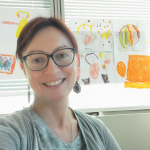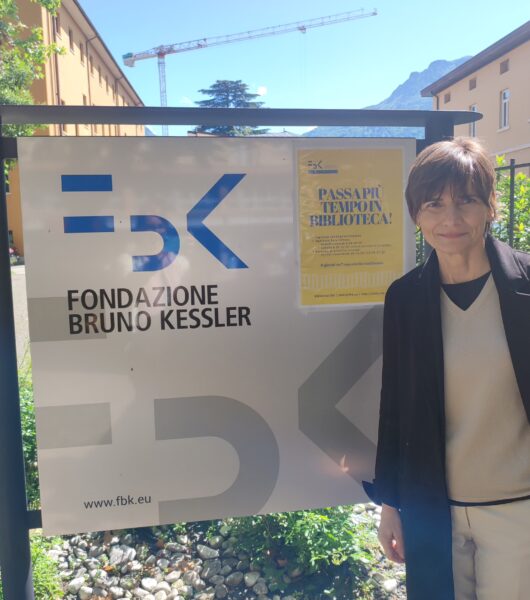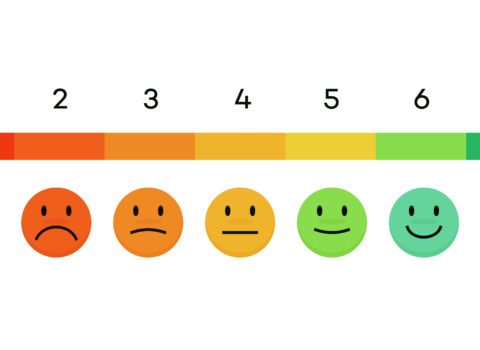
Does financial literacy start at home?
Giovanna Paladino addresses the topic of financial literacy by trying to understand whether money management models are part of parental educational content and how these are transferred generationally and are appropriated by children.
Organized by FBK-IRVAPP, the seminar “Financial Literacy starts at home” by Giovanna Paladino (Intesa San Paolo) was held on Monday, May 15, 2023.
Giovanna Paladino presented the results of a research study that aims to understand whether money management patterns are part of parental educational content and how these are transferred from one generation to the next and are appropriated by children through stated behaviors. The survey underlying the research work was conducted between September and October 2022 among 311 households representative of the Italian population (824 people). In addition to the socio-demographic component, the questions in the questionnaire covered: the type of parent-child communication; the frequency and type of activities carried out together; educational models related to money and its social representation; self-reported money management behaviors; and the role of study and school in the educational process of the new generations.
We took the opportunity of having Giovanna Paladino with us to ask her a number of questions, including the role of financial education and its evolution in various reference contexts:
- What are the variables that play a key role in the construction of young people’s financial education?
“In general, there are both the family and school contexts and, on top of them, the personality element, which, on the other hand, had already emerged from another research. These elements are fundamental in helping young people to have a greater awareness when using money. In particular, the main personality elements include curiosity and thoroughness, which help in this regard.
Family background is equally important, and therefore, those who have a difficult socioeconomic background or are in a family where communication is lacking are more likely to struggle with managing money responsibly.
Schools do their best, but right now there are schools that address financial education, but also schools that do not address it at all.”
- Why do you think the mother figure in particular takes a key role as an example in this educational process?
“The results of the survey confirm that the mother, spending more time at home, is the person who is asked the most questions related to the topic of financial management or who responds to direct requests for money. Unfortunately, however, women in general, not only mothers, are also the least knowledgeable on this topic, as shown by several surveys done in the past as well, as they have less skills on this topic. And this happens predominantly because women report having little interest in the topic and therefore spend less time on it.
We found evidence of this also within our research and it is important as it tells us that we need to work harder on women in order to increase their skills and awareness on the topic. This process plays a critical role for both women and their children.”
- Do you think that in the future, school could also play a relevant role alongside the one currently played by the family?
“School is a leveler and therefore gives the opportunity, even to those who were not born into a family where financial education and management are routinely talked about, to acquire basic training in terms of autonomy in managing money responsibly. As the results of the survey confirm, at the moment the family does not trust school education on this topic: 88% of our sample says that they prefer to talk directly to their children about it and not to delegate this task to school education. Only 6% of parents would like to delegate financial education to schools.
The real reason for this response lies in mistrust of the school system, which 40 percent of families feel is not aligned with modern needs, and this is also accompanied by a certain mistrust of teachers, which they feel are not sufficiently skilled on the subject.In the future, therefore, we should help schools gain authority in order to better fulfill their role as equalizers of students’ opportunities.”
- Money management patterns are part of parental educational content, but how have they evolved over time and how do they change from one generation to the next?
“In general there is a lot of hysteresis, immobility, parents transfer to their children rather simple behaviors such as how to control expenses and plan savings. They themselves are struggling to move from saving to investing, so there is no dynamic transfer of different skills. Even from the point of view of intertemporal preference, i.e., deciding whether it is better to have an egg today or a chicken tomorrow, which is therefore also an indicator of patience and perseverance, we have confirmed that in Italy men, and mainly women, prefer “the egg today to the chicken tomorrow,” and this is replicated in the same way by children within the family context.
This lack of vision of the future is an indicator of immobility as one mainly sees and thinks about the present. The problem arises from the lack of skills that are acquired through financial education, primarily for adults, who can then transfer it to their children.”
- What are the skills needed to manage one’s money responsibly?
The skills to manage your money are not many, but there are some concepts that can be considered “life savers”; in particular, it is important to know that when a return is offered by any financial or economic activity, this implies a risk.
In economics, there is no return without risk. However, so many people do not know what risk is and how to manage it. Risk means losing the investment, and the higher the expected return, the higher the risk. Diversification is a very simple tool, the only freelancer in the economy, to mitigate risk. Diversification means choosing first, ex-ante, at the time I hold my money, how to allocate it to different assets that have different intrinsic characteristics so that if something happens in the markets, not all my investment goes in the same direction.
Markets are not deterministic so there is no certainty, as in real life: there will still be unexpected crisis elements. This stochastic and unpredictable element implies that we have to gear up first, to mitigate risk, through diversification done right. In this way, risk is not cancelled out, but reduced. Only 37 percent of Italians know the right concept of diversification, and, therefore, most do not apply this concept in financial management, for example, leaving all the money in the checking account and losing some of it due to inflation.
The ability to make a budget and thus forecast income and expenses is also an important skill, as is being able to tell essential expenses – such as paying a bill – from unnecessary ones – such as buying the latest iPhone released. Planning is another very important aspect: in fact, it is proven that having a goal in front of you, knowing where you want to go, increases the probability of reaching your target; consequently, if you have goals, it is easier to save money.”
- How to save money? Is there any trick ( or perhaps any financial tool in particular) for young people, but also for families?
“Constructive saving is motivated by planning, thus a goal, as well as patience and perseverance. One should not be afraid of small amounts, small ones can be enough, one can save at any level and in tight economic conditions.
So, if I have defined a goal, it is easier to save. The element of dream and desire give an inner drive that facilitates this project and helps us live better, both personally and financially.”
- Does managing a scarce resource like money have similarities to managing environmental resources?
“Five years ago the SAVE (Sostenibilità, Azione, Viaggio, Esperienza, in English Sustainability, Action, Journey, Experience) project was created, and circulated among schools in many Italian cities. This program addresses the topics of economic and environmental sustainability, which have many elements in common.
In the area of environmental resources, just like in the management of money, we need to have a long-term time horizon. If we look only at the present, we tend to consume everything, in terms of resources in general, and not to think about future generations, for example.
Also in this case, we need to manage these resources not only wisely but also with a constructive vision of the future. I think that the concepts of environmental and economic sustainability cannot travel separately. In a few decades, we will be more than 9 billion people who will have survival needs related to the environment, but also to the economy, so being able to work synergistically between these concepts and see the similarities between them is critical.
For example, we try to explain to kids the principle of circular economy, which means not only avoiding waste, but thinking about the object in the future and creating it in such a way that, once its primary life cycle is over, it has a secondary one by entering as an input of another production process so that, as it happens in nature, nothing is created and nothing is destroyed. Basically, there is no waste in nature, and this is what is also the basis of the circular economy.”




